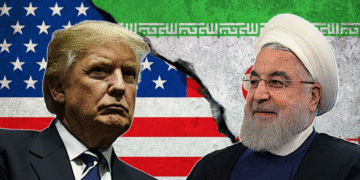By John F. Di Leo –
International trade has always been in the news. Business reporters talk about a trade deficit, politicians wail about jobs being exported overseas, and every so often, the government signs a new free trade agreement or trade promotion agreement (they are different things) with one or two or a hundred faraway countries.
But despite all this, international trade policy has not been at the forefront of the news cycle in a generation; not since the US-Canada Free Trade Agreement was voided 25 years ago, to be replaced by NAFTA, a three-party FTA between Canada, the United States, and Mexico.
Thanks to the election of Donald Trump, and his dogged determination that this country change its approach to trade, the issue is back at the water cooler again, and we can assume it will remain there throughout his presidency.
There are of course many different approaches to international trade. Should we set high tariff barriers to reduce imports, or set low tariffs to offer the broadest cost-effective options to our people? Should import duties be a significant source of revenue for the national government, or an accounting error?
The USA began with an intention that the federal government’s primary sources of funding would be import duties and the sale of land as the nation expanded westward. These approaches were abandoned long ago as our federal government instituted corporate and person income taxes, Social Security and Medicare, and went from selling government land to nationalizing private property. Most other countries, too, today rely far more on VATs, GSTs, income taxes, and other taxes than on duties.
But duties, while minimized in importance, remain in place, all over the world. The USA gradually started a process of reducing our average import duty rates in the 1970s, and today we have among the lowest duties in the world, on most products. Many imports are unconditionally duty-free, or carry low rates of 2 or 3 percent of goods value, or sometimes 5 or 6 percent, although some highly protected products (like certain textiles) carry higher rates of 10 to 20 percent. Across the industrialized world, most of our trading partners set higher average rates than ours, usually two or three times ours, often much higher. Canada’s punitive duty rates doubling or trebling the importation cost of many American dairy products, for example, have recently been in the news.
So when the USA started to engage in the concept of Free Trade Agreements, it was viewed as a great deal for the USA. The basic ideas of FTAs are twofold: set rational standards for legal and labor practices across the partnership to protect intellectual property rights, worker safety and so forth, and encourage more local sourcing and manufacturing by giving duty-free status to goods that deserve it. So if you make a product locally, but with too high a percentage of outside components, it won’t get the duty-free benefits, but if you source a decent percentage of materials from members of the FTA, then your finished product deserves that duty-free status. The devil is in the details, of course, and FTA compliance is incredibly complex.
Most of us “Free Traders” – when the USA entered the world of FTAs in the 1980s – thought of this as a win-win. It would encourage American manufacturers to source more of their raw materials and components domestically, and we would give up less in duties than the partners would, while gaining greater access to their markets. Think about it: the Mexican product that would otherwise get hit with a 3% duty in the USA now gets zero duty… but the USA product that would otherwise get hit with a 6% duty in Mexico now gets zero duty too! FTAs lowered the duties on our exports a lot more than they lowered the duties on our imports. Viewed from this perspective, FTAs are wonderful for American manufacturing.
All that being said, however, a number of cracks have been surfacing in that shiny image over the years of implementation. We have noticed some FTA partners disregard the FTA completely, as with Canada’s aforementioned dairy duties. We have noticed many trading partners establish non-tariff barriers, such as onerous inspection/approval rules and draconian documentation requirements, making it difficult or impossible to export to them, despite the removal of duties.
And perhaps most importantly, we have begun to really think about the difference in how countries tax, in general. For the most part (alcohol and a few other imports are an exception), the USA only assesses duties and less than half a percent in Customs fees on import shipments. We don’t assess a broad VAT or GST on imported goods.
But Europe, Canada, Mexico, and many other countries assess VATs or GSTs of 15, 20, even 25 percent or more on imports, in addition to the duties. So what does that really mean? It means that perhaps we should have been viewing FTAs from a different perspective all along.
If we gave up a 3% duty and Mexico gave up a 6% duty, we thought we were getting the better end of the deal. But when you factor in Mexico’s 16% VAT on that same import, we realize that we gave up 3% and Mexico only gave up 6% out of what had been 22%. So our goods are still severely taxed upon importation abroad, even after an FTA is in place.
It is certainly not fair to attack foreign countries as taking advantage of us if we entered into an agreement with our eyes open, and we just didn’t think about the total picture when we negotiated them (intentional deviations like Canada’s dairy taxes and other non-tariff barriers being the exception of course)… if blame is to be assigned, perhaps we should blame our own negotiators for not seeing the forest for the trees, years ago.
But it certainly is fair, after a generation of participation in FTAs, large and small, to review how our view of trade compares with that of our trading partners. It is fair to say that perhaps – all along – our FTAs should have taken the total import tax burden into account, rather than focusing exclusively on duty rates.
And it is important to remember that our biggest challenges in the trade world are actually countries with whom we do not have FTAs at all. You can’t blame “bad free trade agreements” for our challenges with Mainland China or Europe, since we don’t HAVE free trade agreements with China or Europe!
As this administration pursues its negotiations with other countries, there are several themes it should keep in mind:
The past decision to focus on duties and not other taxes was a shared fault, not theirs alone; we shouldn’t blame other countries for our own negotiators’ too-narrow focus.
The American manufacturing community is on a rebound; sudden imposition of high tariffs hurts us at least as much as it hurts exporting countries.
And the broad original goal of encouraging both domestic manufacturing AND domestic sourcing of raw materials and components was and remains one of the best goals of trade policy; whatever we do, we must never take measures, retaliatory or otherwise, that drive even more of our present manufacturing and material sourcing to foreign shores.
The Republican administration in the White House and the Capitol have done so much over the past year and a half to rebuild the American economy, trade talks are the one subset that could either lock in those improvements or undo them.
There’s no easy answer, and we watch the sudden impositions of 25% tariffs – in both directions – with great concern. Even if manufacturers desperately want to change their sourcing from abroad to domestic, it takes time – four, six, eight months or more – to find and qualify new suppliers, especially when whole industries have been lost to foreign shores for years.
We must never forget that a tariff, after all, is a tax, and new tax burdens on our own people will make such homecomings harder to accomplish, not easier.
Copyright 2018 John F. Di Leo
John F. Di Leo is a Chicagoland-based trade compliance trainer, actor and writer. A former political activist and Spokesman for the Illinois Small Business Men’s Association and Illinois Right to Work Committee, he has now been out of politics for 20 years. His columns are found regularly in Illinois Review.







